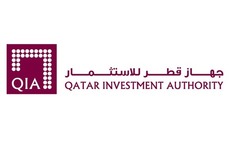
Profile: Helion Venture Partners' Sanjeev Aggarwal
Sanjeev Aggarwal, co-founder of Helion Venture Partners, has been at the vanguard of several pivotal developments in India’s tech industry, from the birth of BPO to the flowering of e-commerce
When Sanjeev Aggarwal, co-founder of Helion Venture Partners, set up his first company in 2000, the timing could not have been better. As a business process outsourcing (BPO) firm, Daksh eServices emerged at the intersection of several important trends in India.
Firstly, the internet was increasingly becoming an aspect of everyday life and more businesses were looking to take advantage. General Electric (GE) was one of the first to cut costs by moving functions to India, setting up its first local base of operations in 1991.
Secondly, as venture capital flowed into the country, entrepreneurs were finding new ways to get start-up funding.
"I was intrigued by the fact that GE had moved some of its business to India and that kind of started to tickle my mind," says Aggarwal. "I started to think about leveraging the connections between the US and India through telecommunication circuits and moving out some back office processes."
In this way, Aggarwal was among the first to see the potential of BPO and his experience made him well placed to tap into the opportunity.
Engineer turned investor
Originally from Chandigarh in northern India, Aggarwal started out like so many other professionals of his generation - as an engineering student. His degree in electrical engineering had set him in good stead for his future endeavors but it wasn't long until he realized his interests lay elsewhere, studying for an MBA and launching a career in business.
Over the following 16 years Aggarwal worked for a number of leading technology companies serving the Indian market, including Motorola, Digital Equipment Corporation and 3COM.
Then, in 2000, Aggarwal went solo. He had seen a gap in the market where so many new internet companies had scaled up their businesses only to find they did not have the internal resources to deal with the growing number of customer enquiries and lost repeat customers as a result. Daksh presented an outsourcing solution.
"There was no BPO industry at that time, in fact we even coined the term," says Aggarwal. "At that time it was called remote services. It was really the start of the industry except that we weren't even aware of it then."
Daksh's first backer was Actis, which put $2 million towards the necessary infrastructure to provide BPO services. The company became profitable within a year, with revenue reaching $2 million. This early success was largely down to securing Amazon as the first customer.
From there things snowballed. The Amazon name brought in a flood of new customers and Daksh expanded its offering to include not just email but voice-based customer enquiries. Over the next year revenue grew to $18 million. Citigroup, which subsequently became a customer, stumped up $6million in funding.
Over the next four years the company expanded to a 6,000-person operation with $60 million in revenue and additional operations in the Philippines. Around same time the US computer giant IBM was trying to fill a gap in its portfolio and offer to acquire the company, which it did for an undisclosed sum in April 2004.
Aggarwal agreed to stay on with the company but it wasn't long before he was yearning to embark on a new project.
"One option was to continue to work as an executive at IBM but I had worked for larger companies in the past and I was used to doing my own thing," says Aggarwal. "The second option was to start another company like a serial entrepreneur but I didn't have any interesting ideas at that time. The third option was to leverage my skills in building a company and apply them with a venture capital group."
Aggarwal took the latter route. He joined Rahul Chandra, a former VC investor with Walden International, Kanwaljit Singh, formerly head of marketing with Intel, and Ashish Gupta, who had been an angel investor in Daksh, and together they formed Helion.
He says the new firm was unique in that management by and large came from operational rather than financial backgrounds - a fact that resonated with LPs.
Helion launched its maiden fund in July 2005 with a target of $125 million and a remit of providing early-stage and growth capital to technology-powered companies. It closed at $140 million after about one year in the market.
From start-up to NASDAQ
Among the early wins was MakeMyTrip, a travel booking website that previously received seed capital from Gupta. The company was operating in fairly crowded space, competing against the likes of Cleartrip and Yatra, and founder Deep Kalra was looking to scale the business.
"It was a roller coaster because while the business was scaling it was consuming a lot of capital because there was a very serious price war going on between the three players," recalls Aggarwal.
"We put a lot of focus on developing our own technology so we could respond quickly to the market changes. We also outsourced customer service to my prior company - IBM Daksh - and invested a lot in building a strong management team."
The strategy paid off. By the time MakeMyTrip listed on NASDAQ in 2010, raising $70 million, it had the combined market share of its rivals.
Helion raised $210 million for its second fund, which closed in 2008, and $255 million for its third in 2011. The e-commerce deals have continued and Aggarwal sees the potential for plenty more.
"We will continue to focus on a number of tech-related segments, especially companies that are high growth and capital light," he says. "E-commerce is part of this. We already have several assets in this segment but it still very early days for the Indian market."
Latest News
Asian GPs slow implementation of ESG policies - survey
Asia-based private equity firms are assigning more dedicated resources to environment, social, and governance (ESG) programmes, but policy changes have slowed in the past 12 months, in part due to concerns raised internally and by LPs, according to a...
Singapore fintech start-up LXA gets $10m seed round
New Enterprise Associates (NEA) has led a USD 10m seed round for Singapore’s LXA, a financial technology start-up launched by a former Asia senior executive at The Blackstone Group.
India's InCred announces $60m round, claims unicorn status
Indian non-bank lender InCred Financial Services said it has received INR 5bn (USD 60m) at a valuation of at least USD 1bn from unnamed investors including “a global private equity fund.”
Insight leads $50m round for Australia's Roller
Insight Partners has led a USD 50m round for Australia’s Roller, a venue management software provider specializing in family fun parks.







